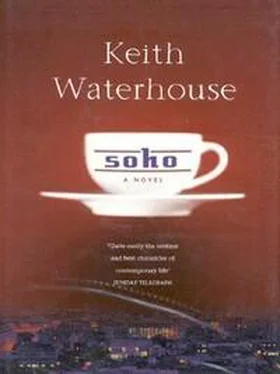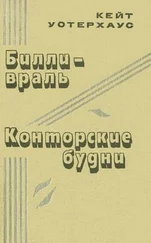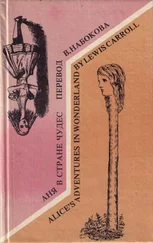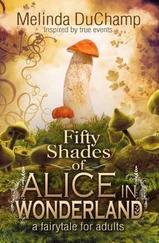Кейт Уотерхаус - Soho or Alex in Wonderland
Здесь есть возможность читать онлайн «Кейт Уотерхаус - Soho or Alex in Wonderland» весь текст электронной книги совершенно бесплатно (целиком полную версию без сокращений). В некоторых случаях можно слушать аудио, скачать через торрент в формате fb2 и присутствует краткое содержание. Жанр: Современная проза, на английском языке. Описание произведения, (предисловие) а так же отзывы посетителей доступны на портале библиотеки ЛибКат.
- Название:Soho or Alex in Wonderland
- Автор:
- Жанр:
- Год:неизвестен
- ISBN:нет данных
- Рейтинг книги:3 / 5. Голосов: 1
-
Избранное:Добавить в избранное
- Отзывы:
-
Ваша оценка:
- 60
- 1
- 2
- 3
- 4
- 5
Soho or Alex in Wonderland: краткое содержание, описание и аннотация
Предлагаем к чтению аннотацию, описание, краткое содержание или предисловие (зависит от того, что написал сам автор книги «Soho or Alex in Wonderland»). Если вы не нашли необходимую информацию о книге — напишите в комментариях, мы постараемся отыскать её.
The setting is obviously real, as are most of the streets, although some are not. Most of the locations are made up; real ones appear only when they have an innocuous role to play. Most of the characters are fictitious and bear the usual non-resemblance to any person living — I will not necessarily add to any person dead. Where real personages appear they have only walk-on parts.
K.W.
Soho or Alex in Wonderland — читать онлайн бесплатно полную книгу (весь текст) целиком
Ниже представлен текст книги, разбитый по страницам. Система сохранения места последней прочитанной страницы, позволяет с удобством читать онлайн бесплатно книгу «Soho or Alex in Wonderland», без необходимости каждый раз заново искать на чём Вы остановились. Поставьте закладку, и сможете в любой момент перейти на страницу, на которой закончили чтение.
Интервал:
Закладка:
But not all Sohoites are there daily, or nightly, to answer to the roll-call. There are those who are of Soho but, owing to circumstances, not in it. They set up their own Soho colonies in Notting Hill or Highgate or the Fulham Road where, playing by Soho rules — the main one of which is that any visible cashflow is communal — and conducting themselves as Old Compton Street remittance men, they languish in exile until, their sins expunged, their enemies now with fresher grudges, their debts paid off or more likely written off, they are free to edge back to the Old Country. There are pubs ten miles away from Dean Street that are spiritually as Soho as the French House. And doubtless there is a wing of Soho in Wormwood Scrubs.
This breed cross-hatches with another — those who are in Soho but not of it. We could find a good number of this type in and around Wardour Street, where the likes of Ellis Hugo Bell, a.k.a. Bell Famous Productions Ltd, have their offices and cutting rooms, many of them even smaller than the others.
Bell rather despises Soho, actually. Spent force. While he lives and works in a fourth-floor walk-up in Crispin’s Yard off Wardour Street, where he rents a chamber the size of a restaurant cloakroom lobby which is his home, his office, and more importantly, his W1 postal address, he dreams of an apartment in New York City and another in Beverly Hills.
This will be when he has got his screenplay Kill Me Nicely , working title, off the ground. Kill Me , as it is colloquially known, at least to Bell, is based on an unpublished novel by a former flatmate, Kim Grizzard, a fact of which the author is as yet unaware since to acquaint him with the news would possibly involve Bell in paying for an option on the film rights, which he is not only unwilling but unable to do until he has got his deal together.
In any case, having changed not only the title but the storyline and the sex of the protagonist, he is in with a sporting chance of Kim never recognising it as his own work, especially if he is on one of his drinking jags when the movie is released. Kim’s novel has a masochistic gay Soho waiter, a resting actor really, wanting to be strangled for fun and succeeding in this ambition. Bell has a masochistic cocktail waitress trying unsuccessfully to get herself murdered for kicks, being saved by the bell when her hired would-be killer falls in love with her.
He sees Madonna in the part, or maybe she is too old by now. All right, then he is thinking Demi Moore, he is thinking Sharon Stone, he is thinking Brooke Shields, he is thinking Linda Evangelista, he is thinking that stunning chick in the drinking-chocolate commercial, what’s her name again? if she isn’t star material then Bell is no judge. To play opposite her he is thinking Leonardo DiCaprio, he is thinking Tom Cruise. At this moment in time it is all up in the air. Anything could happen. If he could get Daniel Auteuil then he would transfer the action to Paris. Take an apartment there. Rewrite the screenplay there. Or rather, write the screenplay there, since it has yet to be developed from a three-page outline.
And then — tomorrow the world. The penthouse. The platinum credit cards. The Porsches, plural. The membership of the kind of clubs that give you a gold key.
But first Ellis Hugo Bell of Bell Famous Productions Ltd has got to raise the sum of four hundred pounds, before he is once again welcome to cross the threshold of the Choosers Club in Greek Street, where you don’t need a gold key or any kind of key but where your bar bill has to be paid up to date, and so does your dealer’s. Bell owes a bar bill of nearly two hundred pounds, and the same amount, in exact figures, to his dealer, Danny.
Cashflow-wise, Bell Famous Productions has been going through a bad patch. There have been times when even though its chairman, managing director and principal shareholder has got the requisite gear, on credit, he has not been able to lay his hands on the equally essential ten-pound note to roll up for snorting purposes. Not that he really needs to snort, until he is seriously working on the screenplay, but to operate as a producer-writer-director (maybe not director: he is thinking one or two guys whose names he cannot currently remember, but who appreciated the pitched outline) he needs to hang out with the kind of guys he needs to hang out with, and where are they to be found except in the Choosers? The Groucho? Soho House? No way. Wankers all — Bell has been there.
But the Choosers has begun to shake its head at him, and Danny, at the end of the bar, if that’s where he is, or downstairs in the marble-flanked washroom if he happens to be doing business at the moment, has taken to holding up two fingers. Bell Famous Productions is — only temporarily, of course — in hiccup mode. Two fingers means two hundred and it has to be found twice over, before he can even begin to dream.
Unsentimental Ellis Hugo Bell, who is not strong on research, either into his own mercurial projects or the mercurial mini-planet he finds himself inhabiting, wouldn’t properly realise that even beyond the chrome and glass confines of the Choosers Club (known to Private Eye , inevitably, as the Losers Club), he walks in a realm of dreamers. Had he ever allowed Len Gates to grasp his sharp lapel, he would have known that it has been so ever since Soho was invented, with the ultimate purpose of accommodating, in the fullness of time, the likes of Bell Famous Productions Ltd.
We have to go back in time, and then fast-forward. Seen through a camera’s viewfinder, Soho (as it would not occur to the pedestrian Len Gates, to whom history is buildings, to look at it), has known three periods — sepia, black and white, and colour. For anything earlier you would have to look in a print gallery, at those so-elegant, so Len Gates engravings of grandees in their grand town houses in grand squares, before the refugees came teeming in from every ghetto in Europe, with their shoemakers’ lasts and tailors’ thimbles and lacemaking machines and carpenters’ tools and watchmakers’ lenses and jewellers’ scales, to transform the parish of St Anne’s into the seething mini-cosmopolis it has ever since been.
In its sepia days Soho was a honeycomb of one-room workshops, delicatessens, charcuteries, coffee blenders, newsagents, cheese importers, wine shops, barber shops, shoemakers, jewellers, pubs, tobacconists, open-fronted greengrocers whose pyramids of oranges spilled down into the gutters, and dozens, no, scores, of cramped little cafés and restaurants, French, Italian, Greek and German. Old Jakie, selling his Evening Standards at the side of the Prince Edward Theatre, a pitch he has known since it was the old London Casino, remembers eating three courses for one and thruppence in those sepia days, when the riot of bleached shop blinds gave the corner of Old Compton Street and Dean Street the look of a three-masted schooner in full sail.
There is a touch of the sepia about Old Jakie himself. Nobody knows quite how old he is but he goes so far back that when he was born over the Welsh Dairy in Romilly Street it wasn’t yet called Romilly Street, but Church Street. Old Jakie’s first job on leaving Soho Parish School in Great Windmill Street was delivering milk to the cafés and tavernas from that same Welsh Dairy. Then he sold papers, as he does now. Then he was a market porter in Berwick Street, scene-shifter at the Apollo Theatre, window-cleaner, bookie’s runner, three-card-trick frontman (the ostentatious “winner” who pulls in the punters), amusement-arcade minder — and all without setting foot outside Soho. Then the Welsh Dairy was turned into a sex shop and he worked there for a spell too — back to square one, as he used to say.
Old Jakie is so ancient, and so sepia, he can remember your so-called Bohemians trickling across into Soho from what they used to call Fitzrovia, after the Fitzroy Tavern — North Soho or NoHo as some of them call it now, or NoGo as irreverent Soho has it. Artists, poets, that crowd. That Augustus John. That Dylan Thomas, piss artist he was supposed to have been. But Old Jakie had never seen him handle more than a half, and that he made last all night. The French pub he used to use, they all did. And there was one reason and one reason only why they deserted Fitzrovia and took up Soho in Old Jakie’s opinion, and that was because south of Oxford Street the pubs in those days stayed open half an hour later. And that was why they came, for that last half-hour. And when the pubs closed they either went on to the old Gargoyle Club or the Café Royal, where so long as you had a sandwich in front of you, you could drink till all hours. Old Jakie knew that for a certain fact because he had worked in the Café Royal kitchens, washer-up, ten bob for the night, and come closing time the waiters would barge in through the green baize door with these plates of sandwiches the punters had left, because all they wanted was the drink; and that would be Old Jakie’s supper.
Читать дальшеИнтервал:
Закладка:
Похожие книги на «Soho or Alex in Wonderland»
Представляем Вашему вниманию похожие книги на «Soho or Alex in Wonderland» списком для выбора. Мы отобрали схожую по названию и смыслу литературу в надежде предоставить читателям больше вариантов отыскать новые, интересные, ещё непрочитанные произведения.
Обсуждение, отзывы о книге «Soho or Alex in Wonderland» и просто собственные мнения читателей. Оставьте ваши комментарии, напишите, что Вы думаете о произведении, его смысле или главных героях. Укажите что конкретно понравилось, а что нет, и почему Вы так считаете.












